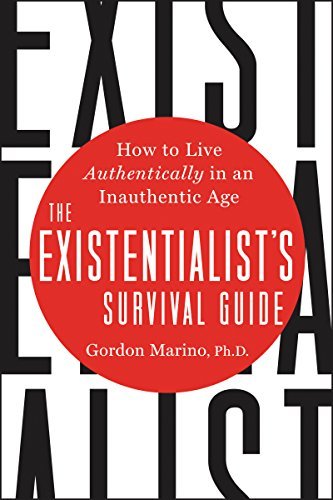What do you think?
Rate this book


258 pages, Kindle Edition
First published April 24, 2018
"I have never ceased to believe that one is and one makes oneself of whatever is made of one."So...what he was saying was "We make ourselves." But languaged up (Sartre was trapped in the "post-modernism" of his day...) I think studying philosophy is a matter of unraveling the language to see if there is anything underneath, and if so, exposing it. I’m sure that Marino summarized the philosophy well. Still, absent an explicit first person interview (all of the subjects were dead), everything is speculation and prone to the analyst’s projections (and Marino does project.)
Jean-Paul Sartre, quoted by Robert C. Solomon, No Excuses: Existentialism and the Meaning of Life, Great Courses from The Teaching Company